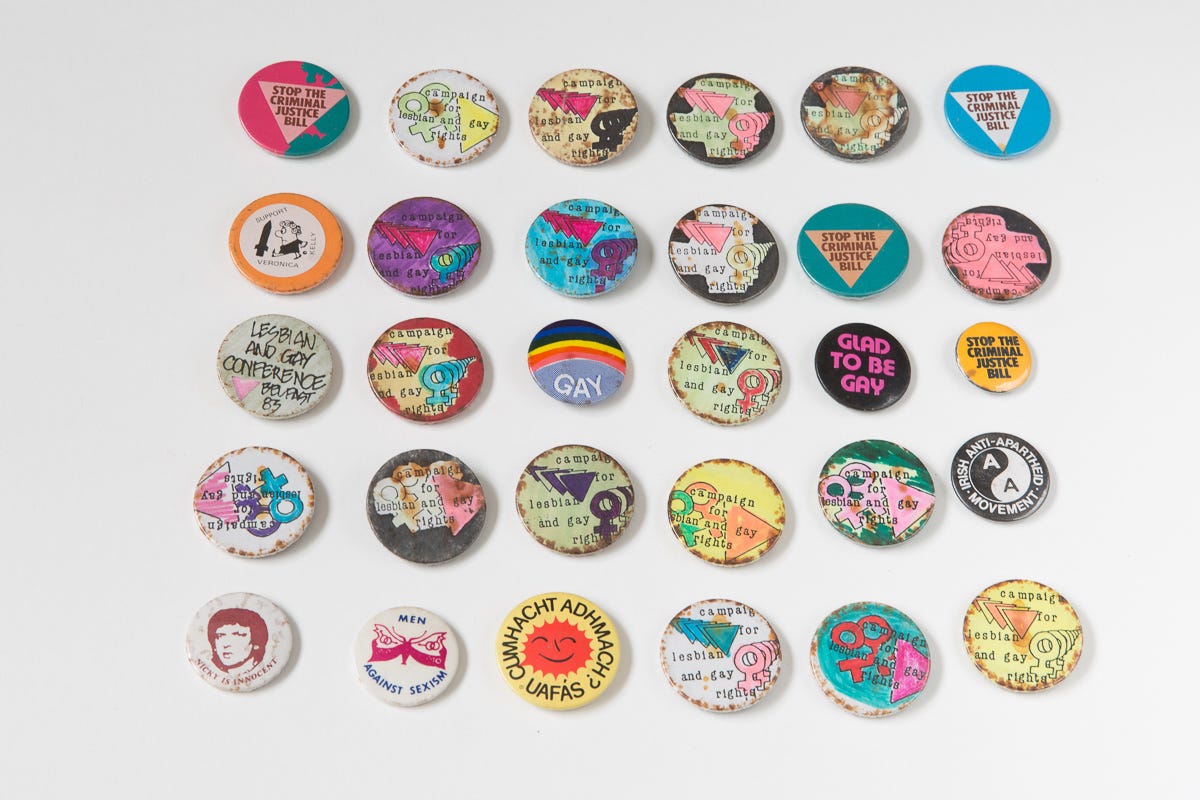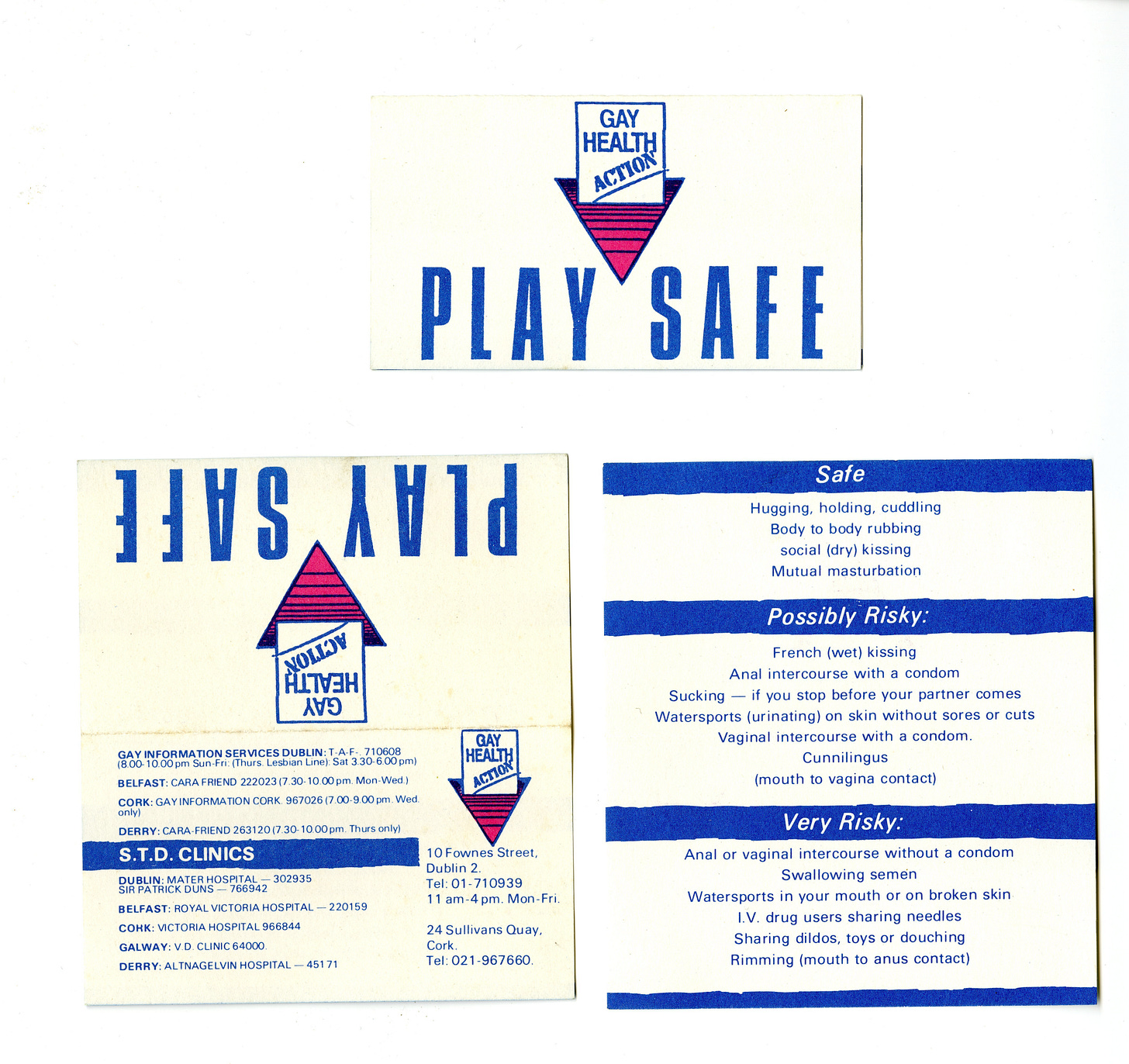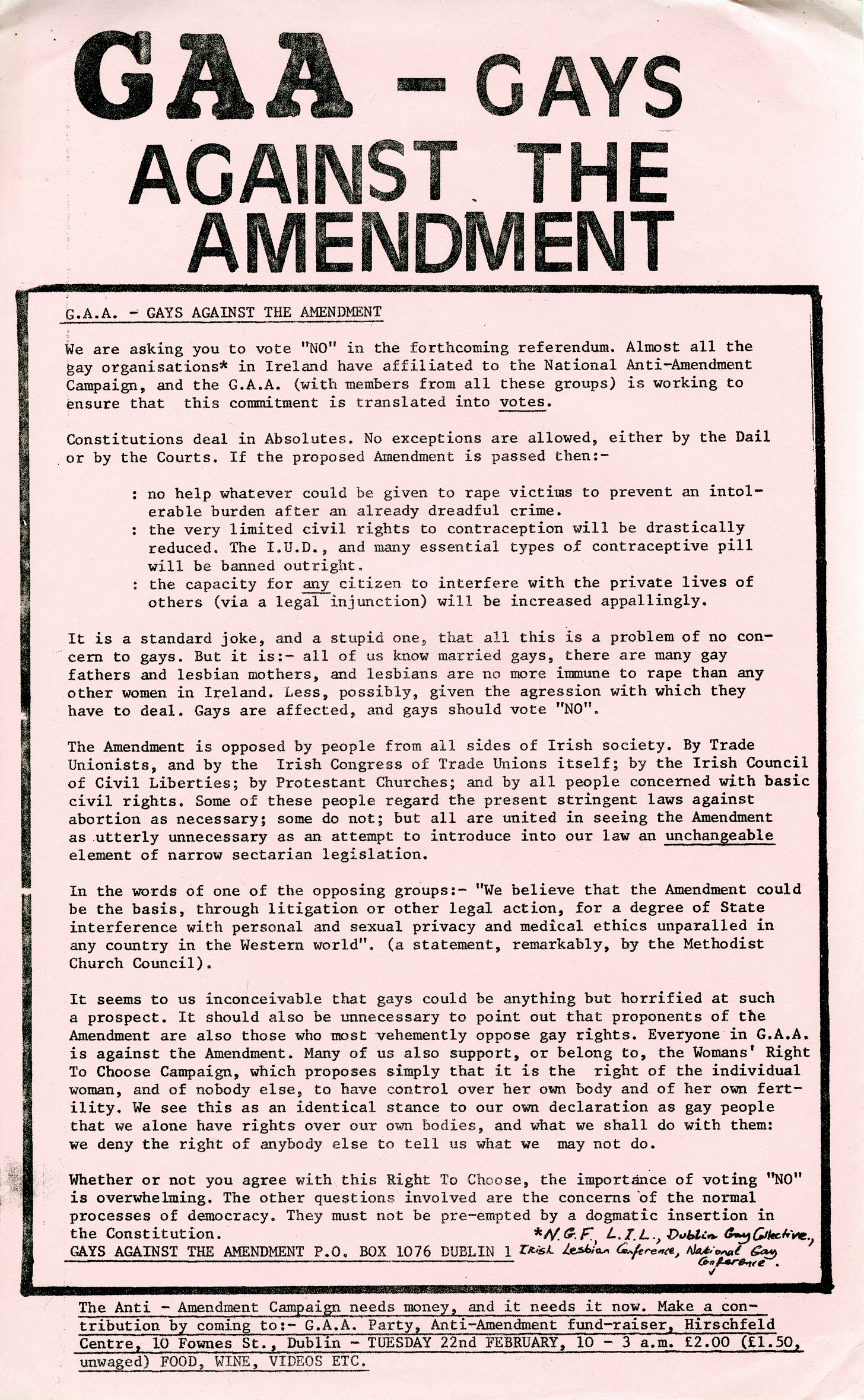DRI Collections Profile: Irish LGBT Lives and Activism
Learn about Irish AIDS helplines, all-island LGBT conferences, radical badges, Dublin Pride 1983 and the GAA!
In my day job I’m very lucky to work with a variety of people and organisations who are committed to preserving digitised or digital objects relating to Ireland’s arts, humanities and social sciences.
The Digital Repository of Ireland (DRI) is a Core Trust Seal-certified repository - which essentially means we are the gold standard when it comes to digital preservation. The vast majority of DRI collections are stewarded under the CC BY-ND 4.0 reuse license and as such, are free to be copied and redistributed in any medium or format for any purpose.
I wanted to take some time to showcase some of our collections that have caught my eye, are relevant to current events, or are generally of interest to me. I do this as a private individual and not on behalf of my employer. If you want to follow the official news from the DRI, please feel free to sign up to the DRI newsletter here.
I’m hoping these kinds of profiles will become a staple series in my Substack.
Irish LGBT Lives and Activism
This weekend past saw the annual Dublin Pride event, a wonderful celebration of all things queer in our capital city. For this post, I want to draw our attention further south to what people down here call “the real capital city of Ireland” - Cork!
Thanks to a Community Archive Scheme award, the Cork LGBT Archive (run by Orla Egan) has ingested over 150 images, audio clips and videos into the Repository. Their own separate archive holds many more items that you can browse. Today however, I want to profile some of my favourite pieces in the DRI Repository collections.
Radical badges

This image (and others in the collection) show us a box of badges from various campaigns and groups in the 1980s in Ireland. We can see LGBT badges as well as others in relation to other social change movements, including anti-nuclear, anti-apartheid, and anti-criminal justice bill movements.
This mixed collection shows the interconnectedness and mutual support between the various social change movements in the 1980s in Cork.
The full collection contains 37 badges and 9 stickers. The stickers state: “Dig Deep for the Miners, National Union of Mineworkers” and reflect the activism most popularly documented in the wonderful 2014 film, Pride.
“Play Safe” cards

This image shows two Play Safe cards produced by Gay Health Action (Cork and Dublin) in 1985. These cards promoted safer sexual practices and provided details of “Safe”, “Possibly Risky” and “Very Risky” sexual practices.
The cards also include contact details for Gay Information Services in Cork, Dublin, Belfast and Derry and STD clinics in Dublin, Belfast, Cork, Galway and Derry.
Cork AIDS Helpline Poster

Poster advertising Cork AIDS Helpline, produced by Cork AIDS Alliance (CAA). CAA was founded on 29 July, 1987.
Shortly after the group was launched they organised an Information Day on AIDS in Cork City, raised funds to rent and equip an office, trained volunteers for a Cork Branch of Cairde (a befriending service for people affected by AIDS). CAA officially opened its office in mid-February, 1988.
Cork AIDS Helpline started operation on 29 February, 1988, providing a telephone service for three days of the week. CAA's Outreach Group provided speakers and seminars to a wide variety of local organisations. Free sexual health and HIV/AIDS educational material was freely available from their office on 22 MacCurtain Street, Cork.
Cork Gay Collective at Dublin Pride 1983

This photograph depicts Donal Sheehan and Pat McCarthy holding a Cork Gay Collective banner outside St. Stephen's Green at Dublin Pride 1983. Mary Molloy of Dublin Lesbian and Gay Collective is also in the picture.
Cork Women’s Action Group

Leaflet for Cork Women's Action Group, providing information about the group's activities, including a Confidence Building and Assertiveness Group, a Women in Separation Group and a Women's literacy group.
ICTU Conference Cork 1981, Gay Rights, Workers Rights

This black and white photograph is of Laurie Steele, part of the Cork Gay Collective, leafleting outside the Annual Delegate Conference of the Irish Congress of Trade Unions (ICTU) in City Hall, Cork in 1981.
Laurie Steele holds a placard that states “Gay Rights, Workers Rights”.
GAA - Gays Against the Amendment

This leaflet is from GAA - Gays Against the Amendment - outlining reasons for their opposition to proposed amendment to the Irish Constitution enshrining the right to life of the unborn.
The leaflet also advertises a fundraising event “GAA Party” on 22 February 1983.
The Cork LGBT community was actively involved in the Anti-Amendment campaign in the 1980s. (As a side-note, this is peak visibility for those of us who are pro-abortion, pro-gay, pro-GAA!!!)
Cork Lesbian Line Stickers

This is an image of a sheet of stickers for the Cork Lesbian Line advertising the telephone helpline number - probably from the 1980s. These stickers would have been placed on public transport, in bathroom cubicles and across cities, towns and villages in Ireland.
1983 All Ireland Lesbian and Gay Men Conference Belfast Leaflet
A leaflet for the 3rd Irish Lesbian and Gay Men conference (note: the first two conferences were called the National Gay Conference - this event was called the All Ireland Lesbian and Gay Conference). The event was held in Belfast from 4-5th June 1983.
The theme of the conference was "The Gay Movement as a Campaigning Movement." The venue for the conference was the Crescent Arts Centre, Belfast.
These images are just a small example of the many preserved collections in the DRI Repository and on the Cork LGBT Archive itself. If you enjoyed this post, please consider making a donation to one of Ireland’s LGBT charities - I particularly rate BelongTo and The Rainbow Project.
This weekend past, in Ballymena, slurry was spread over the footpaths and roads before the first ever pride parade in the town. This really despicable action reminds us that prides are so important and continued support and visibility for our LGBT communities is urgent and vital. Pride is a protest - let us never forget.




